Nathaniel Sewell's Blog, page 2
September 30, 2020
Dying Honey Bees – a novel – (a beginning)
I have a new novel roaming about inside my mind, I’ve entitled it, Dying Honey Bees.
I wrote the ending, I hate it, but I’m emotionally attached. So, I have a beginning and and ending – I wonder where this journey will take me?
Below I’ve shared the opening paragraphs. This is my rough draft before an editor gets all gram-early on my raw manuscript. I added the photo as I have imagined the book cover, the simplistic image tells the story.

Dying Honey Bees
They say we humans need honey bees to live. I do not know who they are, the pronoun usage a mystery to my fractured brain. Something or other about the bee kingdom’s ability to pollinate and be social with other forms of life. I don’t really know if that’s true, I’m not a scientist.
We need plant life for that pesky thing our bodies need, food. But that morning, a fragile honey bee lay dying near my well-worn tennis shoes. Instinctively, I knew there was nothing I could do. I think it important to listen to my instincts. It’s that hidden voice inside my mind that tells me the truth, even though I might not want to hear it.
I kneeled down and cradled the insect from off the hot concrete path. I hated to see any living thing suffer. I guess I’m softhearted, a poet’s heart, I presume. Many times on my early morning walks in downtown St. Petersburg, Florida, I’d do the same courtesy for brown worms that had been displaced from the soil beneath a perfect St. Augustine grass lawn by an overactive irrigation system. The worms wiggled from fear, I guessed, as I do not know the mind of a worm. After I grasped them, and within seconds, I noticed they calmly rested within my cupped hands. Perhaps they sensed I meant them no harm.
I’d find them a nice fertile spot behind rose bushes, or beneath oak trees, or a lush green spot farther into a yard for the worm to regain its bearings and I hoped burrow back into the moist soil. If I found a dead bird, I’d do the same service and find them a peaceful spot to return to the earth. I don’t know what I’d do if I came across an injured animal. Perhaps I’d call animal control, but then they’d euthanize it. I’d experienced those moments growing up in Central Kentucky watching an injured thoroughbred taken down on a dirt race track. The idea being, the animal would no longer suffer. I thought it an undignified moment from my life as the animal had given its life for my drunken entertainment and unceremoniously extinguished from the living world and carted away.
My simple act was something I did and still do. My ex-wife thought it an odd peculiarity. But when I was a child, I read a Bible verse, “And be ye kind, one to another, tenderhearted, forgiving one another, and then blah, blah, blah…”, I know it’s a King James Version as I’m not fluent in Hebrew or Greek. I must trust the former English monarch’s translation, and well, I made my point. I don’t want living things to suffer. I wish all living things just went to sleep one unknown night, and if it was just their appointed end time. Simply, they didn’t wake up.
Unfortunately, there is evil in this world, violence, anguish, and more suffering. I do not understand Devine’s Providence, but I guess if we don’t experience the ugly side, we cannot understand pure love. Loving one to the other being the most powerful emotion and action ever invented. The choice cannot be defined.
The honey bee in my right hand palm gasped for oxygen, its wings no longer workable. It had not fought me; it was powerless as its time on earth foraging was at an end. I found a quiet spot within a massive banyan tree for it to pass-on. A fig tree that grows over the host plant that had wasted away, leaving behind a hollow shell as its root system multiplies laterally around the center.
It was sad to me that the quivering honey bee had strayed from its hive and would never return to its home. It died as I stood nearby. I didn’t want it to die alone as morning sunlight shot yellow rays through gaps in the tree’s dangling aerial roots.
And then the honey bee became quiet and still within the tree’s inner core. I whispered a pray for peace. My preacher grandfather taught me to express something positive for the deceased. Then I dug a tiny hole in the sandy turf. I buried the insect. Its tiny body would decay and go all ashes to ashes and dust to dust, but at least I had taken a moment to express a dignity, a respect for its life. I decided at that moment that it was not the time spent on earth living; it was the quality within that beginning and the ultimate end date that mattered.
End.
NS
September 25, 2020
A Prayer For Peace
As those that know me best can attest, I have a nasty temper that shields my soft heart. I know I have a poets heart, I’m genuinely all gooey on the inside.
I wrote this poem in a prayer form as a meditation. I hope the words convey the sentiment.
I pray we can all seek peace over violence.
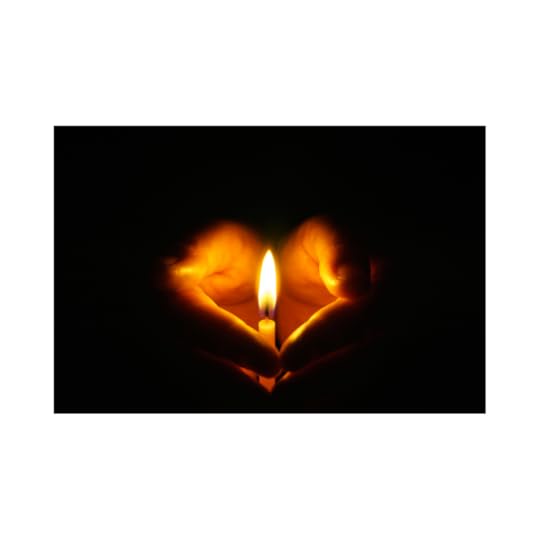
If I give my heart without expectations,
I give my heart seeking peace and understanding,
If I share kindness without reservation,
I share kindness, seeking peace and understanding,
If I offer grace in the presence of evil,
I offer grace, seeking peace and understanding,
If I unclench my fist and relax my jaw,
I unclench my fist, seeking peace and understanding,
If I stop to listen to words, I don’t want to hear,
I stop to listen, seeking peace and understanding,
If I break-bread with my supposed enemy,
I break-bread seeking peace and understanding,
If I cede a modest amount of ground for an equitable view,
I cede the ground seeking peace and understanding,
If I sow color-blind friendship seeds deep within my soul for unborn generations,
I sow color-blind friendship seeds deep within my soul, seeking peace and understanding,
If I accept life’s imperfections as a journey I’ll never fully understand,
I accept peace and understanding into my heart,
If I bequeath only love after my mortal body transforms into a dusty memory,
I bequeathed my hope and last prayer for universal peace and understanding.
Hugs.
NS
September 21, 2020
Dead Stare – a poem
Let me explain this poem – a friend recommended my next novel might be about mental health issues that have bloomed from the pandemic’s impact and the significant spike in domestic violence and abuse.
I noticed this photo from a software I use for a variety of reasons. It’s a subtle photo, but if you examine it closely you’ll note the woman’s unfocused gaze.
I’ve seen the same gaze staring back at me in the mirror.
PTSD and a raft of other mental issues will emerge once this current mess gets managed.
I attempted to capture what’s going on behind her eyeball.
Simply stated, I pray for peace and understanding.

Dead Stare – a poem
Self-quarantined into an eternity,
My walls are creeping closer and closer,
Day-by-day, day-by-day,
A ticking clock’s seconds crawling down my spine,
Slivering into a pool of memories trapped inside my head,
But all I see is an outside world that’s dead,
So, I stare at nothing but dread,
A feature film displays a violent picture show that only I can see,
A video on a continuous loop behind my eyes as if I’m lost at sea,
Flash frozen in my time, slap to my face, the sting, my body disgraced,
Powerless on my back,
My legs dangling in space,
But all I see is an outside world that’s dead,
So, I stare at nothing but dread,
I numb my body into oblivion to make it feel like dead pencil lead,
As I go drowning my consciousness inside my head,
My lucid thoughts wandering away with my best friend, regret,
If only I had made a better decision, instead,
I think I’m still alive, but my sanity is drifting away with the dead,
And all I see is an outside world that’s dead,
So, I stare at nothing but dread.
NS
September 14, 2020
The Land & The Sea
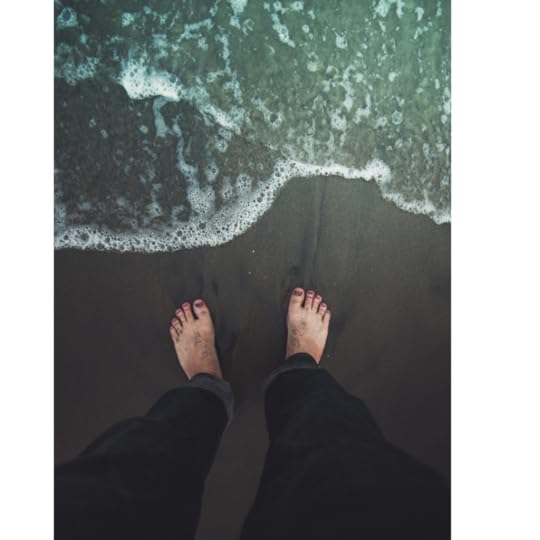
His feet rested within the sand’s comfort at the intersection of the land and sea,
Alone to search the water’s horizon as the yellow sun descended from his relative view,
Soon dark nighttime would come for him within the humidity and late summer warmth,
Darkness comforted him, the invisible winds enraptured him,
He preferred to remain hidden from the passerby,
Unwilling and uninterested in exchanging pleasantries with a stranger as frothy white waves came and went,
He was alone again; they had settled the matter,
She was gone from his life,
All their time together now, forever memories,
But he looked down and noticed the waves kept coming and going,
He knew from experience the sun would rise again,
Assured he had the capacity to love another human being,
To accept and feel the raw wound from separation,
But the wound will heal,
The memories will fade,
And he will seek happiness and soon he will start searching for love, again.
NS
September 6, 2020
What I Think … I Hope Someday
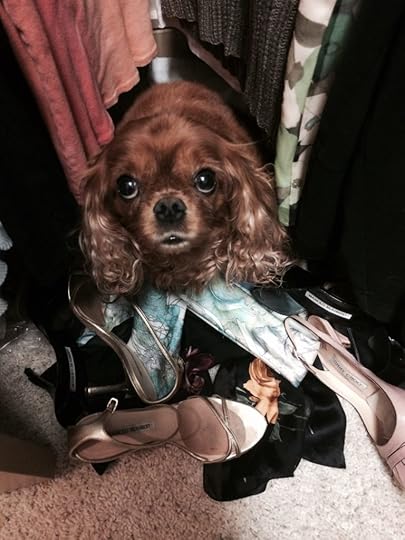
The photo I shared I snapped with my smartphone many years ago.
It captured my deceased King Charles Cavalier, Pink Petunia, gnawing on my ex-wife’s fancy lady shoes and scarves.
In my martial journey, I learned a great deal about women’s apparel. The big takeaway being a single word, expensive.
So, as you might imagine, at the time, I was angry with Pinky for almost destroying the merchandise.
Unfortunately, I have a nasty temper. And I barked down at this diminutive face. Shame on me!
I inspected the dainty, soft leather shoes and silk scarves, and nothing seemed damaged.
I forgave Pinky. How could I not?
I loved Pink. But then Pink looked up at me with those hypnotic eyes.
It was my turn to ask for forgiveness after I had irrationally yelled at her. It was just a bunch of stuff, we can replace stuff.
I picked her up and hugged her. I quickly showered her with treats.
As the statement from a certain movie, her eyes “had me at hello”.
Fast forward to earlier this morning.
As I walked near the downtown St Petersburg waters, I sometimes escape into a palm tree arboretum.
An arboretum is a fancy word for palm tree exhibit with the botanical names that I cannot pronounce, written on green exhibit signage.
It’s quite nice, it’s circuitous, and it’s quiet. And spectacularly beautiful.
The reason for my escape from my normal concrete path was for some odd reason on certain mornings I notice other humans talk loudly or seem daft enough to listen to music and destroy the silence.
They annoyed me.
Or they were pecking away on their smartphones and almost bump into me.
Again, they annoyed me.
If they took a moment, they might notice other humans sitting cross-legged along the water’s edge gazing across lower Tampa Bay as the sun emerges above the horizon.
Many of those other human beings meditating and trying to absorb hopeful energy or release negative energy. I know, I know, I am one of those odd people.
Or maybe they might notice the dolphins hunting a school of baitfish while being observed by a brown pelican.
Perhaps they might notice the snowy egret plotting a redfish heist from a distracted fisherman leaning against a tall palm tree as he was untangling his line.
Or they might hear the birds chirping in the light blue sky and within the thorny palm fronds.
Much earlier as I had begun my walk, I had noticed within the fading darkness several homeless humans sleeping on park benches; I tried to walk passed them silently. But I noticed them.
And I noticed along Beach Drive a homeless man searching the trash receptacles for a meal. All his worldly possessions stuffed into a backpack.
I don’t know how to help them.
I suspect most are mentally ill.
Mental illness is a nasty thief. When it comes to a mental illness, I know I’m powerless.
But then, during my escape from the human noise makers, that, did I mention had annoyed me? I walked near an older couple.
He could barely walk. She was in much better shape.
What struck me was that she stayed close behind him. The red brick path wide enough for all three of us. She could have easily strolled next to him.
He said hello to me. He had bright pure light blue eyes trapped inside a wrinkled body. His hands clutching a padded walker.
She smiled at me from behind her protective mask. It was her eyes that told me she was smiling. I don’t think she was his caregiver.
I don’t think it matters.
What does matter to me, she was there.
She stayed close behind him, I guessed, to catch him if he fell.
It was a simple feeling I got from her. She was there for him, and she was happy to patiently remain there.
I walked a bit farther and stopped and I looked back at them.
I thought, isn’t that THE WHAT we all want?
Someone to forgive us if we gnaw on the fancy women’s shoes.
Someone to share with us compassion and understanding.
Someone to tolerate us for doing the wrong thing.
Someone to help us up after we have fallen down.
Someone to encourage us and tell us we’ll be okay.
Someone to be there if we have lost our way.
Someone to accept us if we have gone astray.
That special someone, I hope for everyone.
I hope someone will be there for me, someday.
And I hope I can be that someone, someday.
NS
August 30, 2020
Jen’s Poem
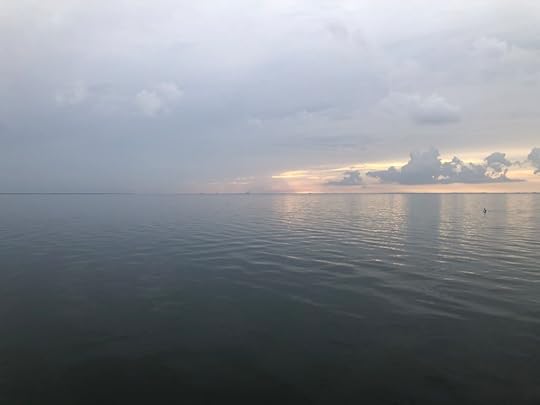
I’m walking in silence,
It’s a simple ritual I do,
Every morning before the sun wakes up,
It’s something that I do,
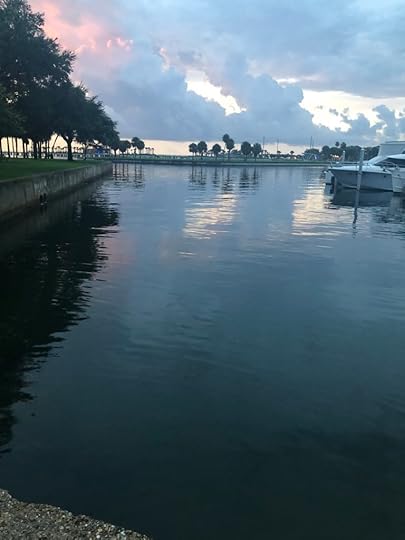
I’m walking in silence,
I’ll share with you what I see,
It’s a simple thing to take photos from my mobile phone of what’s close by me,
So, magically, I can let you see what I see,

I’m walking in silence,
There are other human and canine shadows nearby me,
Moving their bodies through the dense St. Petersburg humidity,
I am thankful to live downtown in this Florida city,
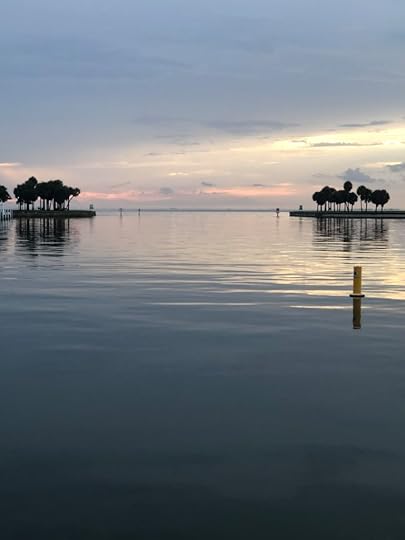
I’m walking in silence,
But I’m never alone you see,
To see the sunrise above the sea,
Because I know God quietly walks along with me,
And, I wish you were here walking along with me.
NS

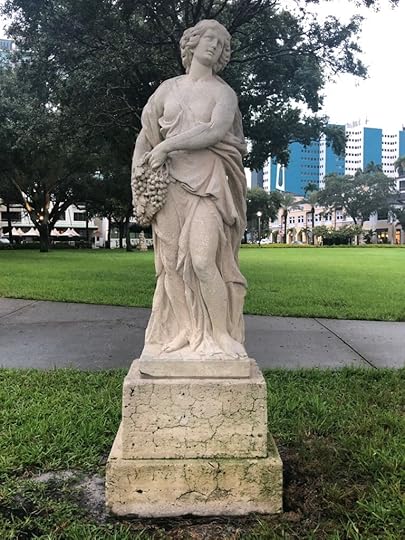

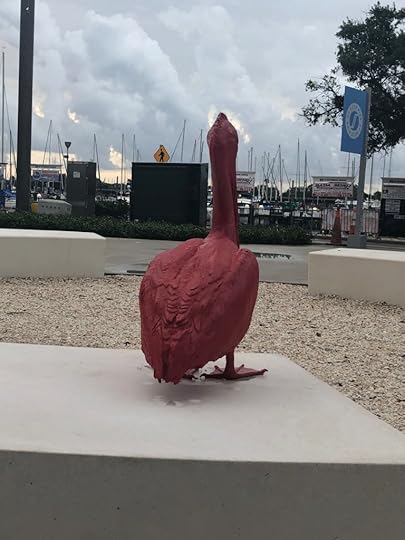

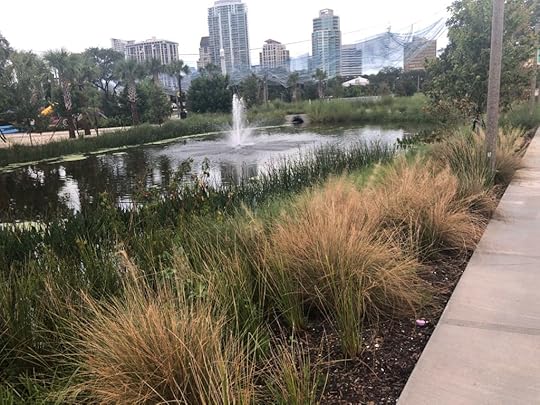
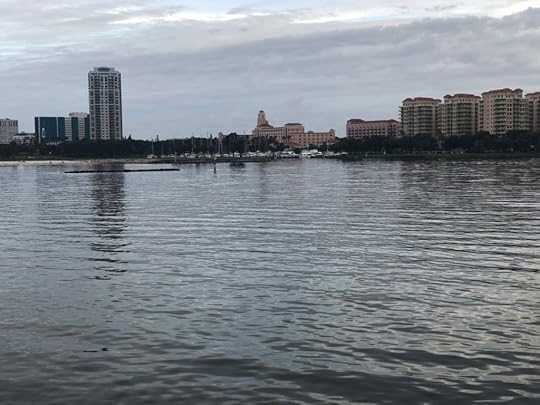
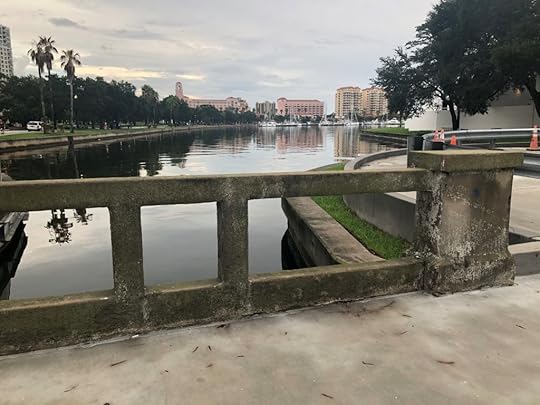

Walking In Silence

I’m walking in silence,
It’s a simple ritual I do,
Every morning before the sun wakes up,
It’s something that I do,

I’m walking in silence,
I’ll share with you what I see,
It’s a simple thing to take photos from my mobile phone of what’s close by me,
So, magically, I can let you see what I see,

I’m walking in silence,
There are other human and canine shadows nearby me,
Moving their bodies through the dense St. Petersburg humidity,
I am thankful to live downtown in this Florida city,

I’m walking in silence,
But I’m never alone you see,
To see the sunrise above the sea,
Because I know God quietly walks along with me,
And, I wish you were here walking along with me.
NS









August 24, 2020
Black Lives Matter

Several years ago a friend pointed out to me that if you are of African American linage, you don’t have a specific country to point to your heritage; you have a continent. A genetic test off the internet might give you a region, but it’s still quite non-specific.
Am I European American? Not likely, I’d say I’m Irish, Scottish or part German American. Do you have any old black and white ancestral photos hidden inside a genealogy book?
I am quite aware, thanks to my friend who was ‘black’ that my path has been easier because I am as white as white. I am so white as to be translucent depending on where the sun gazes down on my relative position.
The photo I am sharing was from my 9th grade basketball team, can you pick me out? I was on the “A” team…
My friend no longer walks amongst the living. He was a wonderful human being. He was quite successful in business and at home. I miss my friend. I learned a lot from him about racism.
Given the cultural climate, and in his memory, I have shared below chapter 39 from my novel 5th&Hope.
I created the entire novel, in part, based on this chapter. The content is quite ugly and deeply personal.
A little context from the novel to help the reader understand.
The characters are on a road trip from California and they are driving through Lexington, Kentucky. The major character is Bobby, and he is retracing his grandparents journey, guided by his grandfather’s diaries. He’s learning about his family and his culture. It’s not a pleasant moment.
I grew up in Lexington, Kentucky. The setting for the chapter is Cheapside and the old courthouse. Back in the day, on those grounds, there was a slave market.
In this chapter, the character, Amy, is pregnant from an interracial relationship. She’s not sure she wants the child. She grew up in Southern California.
The Bobby, Ruth and Rebecca characters are all middle-aged and hardened to the Southern culture, and they are observing Amy, who is an academic historian trying to process the simple state government signs and the Confederate general’s Civil War monument.
##
39
Cheapside was a grassy, innocent-looking spot in Lexington next to the old, domed, Romanesque courthouse, which was made from native greystone topped with an aged slate roof. It was surrounded by the green, Kentucky State government historical signs that I had grown up walking and driving past as if they were as common as grains of sand on a beach. If you were an outsider to the Southern culture, or born in Southern California, and you had never been exposed to the Old South, looking up at the pale greenish-bronze of a proud Civil War general atop a horse might just be the moment you understood the Civil War had been a reality.
Amy read the historical markers aloud and she read them several times more, as if she hadn’t been fully able to understand them.
“Lexington was the center of slave trading in Kentucky by the late 1840s and served as a market for selling slaves farther south. Thousands of slaves were sold at Cheapside, including children who were separated from their parents,” she read. “I don’t believe this!” She walked back to inspect the first historical marker. She appeared to be in total disbelief.
“No,” I said. “It was quite real.”
Amy inspected the bronze statue again, and, with her mobile phone, took photos and researched the confederate general’s losing story.
“On the north-east corner of the Fayette County Courthouse lawn stood the whipping post established in 1847 to punish slaves for such offenses as being on the streets after 7 pm,” she read. “I don’t get it! Maybe I’m just hormonal. He lost, but he got a statue. They whipped people to death, right here?”
“We don’t talk about it much,” I said. I looked up at the weathered bronze monument. “But when I said you’re in the South, this was what I was thinking about.”
“Why the statue to him?” Amy asked. She looked at me. “Where’s the memorial to the slaves?”
“I don’t know,” I said. “A lot of senseless killing…”
It wasn’t a romanticized Civil War reenactment party where no one would die. Robert E. Lee wasn’t a soft grandpa character from a novel and, like Ulysses S. Grant, was a hard, well-trained military man. Each had done their duty. I thought their armies had done all the talking, and the issue had been settled. It was about looking at yourself from outside to seek the truth about life. The truth about our heritage was not pleasant. What I had been numb to, though; what I had thought of as common place from growing up here, had triggered Amy’s emotions. She realized it wasn’t a myth.
“I have a child inside me; it would have been a slave,” Amy said. She covered her face with her hands. “I don’t understand.”
“I was emotional, first was worst,” Ruth said. She looked over at Rebecca. “The first time; my second boy was totally different.”
“I’d like to see them,” Rebecca said. She tried to smile. “It’s been a very long time.”
I acknowledged a passerby as I stood staring at the sign. It had been a nightmare for real, sentient human beings who happened to have dark skin and who had prayed to the same God as my grandparents. They must have wondered at night, sleeping on dirt floors, where their Moses was. I suspected Amy had a sick feeling, like I did. It reminded me of the first time I had toured the Anne Frank house. I was neither Dutch nor European, but if I had been standing in Amsterdam in front of that house in 1943, I would have been shot dead on sight by the Nazis. I wasn’t Jewish, but I was a Jew-loving American. They had to protect the fatherland from the Jewish infestation; it was their final solution for biological purity.
If the four of us had been standing at the same street corner in Lexington, Kentucky, in 1843, before the Civil War, we would have witnessed the unthinkable. Like a large, naked man with dark skin shackled to the ground so he couldn’t run away, whipped with a leather belt like a dog. I had experienced that from my own father until I was big enough to fight back, but I wasn’t a captive slave who had been paraded in front of an auction crowd in all kinds of weather, full of families holding their babies, enjoying court day within the Lexington town square, beneath the oak and sycamore trees. The slave would have been paraded around like a prized bull at a stock yard, his teeth checked to prove his good health, his body examined, gawked at, to determine his worth. And then the auctioneer would have asked for bids for the future estate chattel. The same process had been repeated thousands of times, as explained by a sign at the same quiet spot where I’d stood drinking my morning coffee, an active farmer’s market behind me. Those auctions had also included innocent women and their terrified children. Whole families were either purchased together or separated at the same spot, ten feet from where we stood on a sandstone sidewalk near a line of oak trees.
“Are you okay?” I asked. I put my arm around Amy’s shoulders.
“I feel sick,” Amy said.
“It’ll pass,” Ruth said. “Just part of it.”
“I’m not sure,” Amy said, “I want to feel it.”
“You can’t be serious?” Ruth asked. She touched Amy on the shoulder. “That’s a life inside you.”
“Let it go, her choice,” I said. The downtown traffic whizzed past us as random souls walked across the street from the six-story, modern, pre-cast, concrete parking structure to investigate the market with full baskets of heirloom tomatoes, yellow corn, and jars of local-produced, golden bee honey. “My hometown is full of these historical markers. I forgot they even existed.”
“It reminds me of those cobblestones in Amsterdam,” Rebecca said. She walked closer. She gripped my hand. “Holocaust victims, chilling…”
“Oh yeah,” I said. I nodded. “We walked over them until, finally, someone told us to look down. There they were.”
“It makes me sad, this place should be sacred,” Amy said. She had re-read the historical marker for Cheapside, again and again. “This was ground zero for slavery; it’s like there are ghosts here, ghosts searching for their families.”
“Can you feel them?” Ruth asked. She shook her head and walked closer to Rebecca. “As if they’re with us?”
“Totally,” Amy said. She kneeled down to touch the Kentucky bluegrass. “They’re with us, all around.”
Rebecca and Ruth stood together, sharing a black coffee from another shop adorned with a double-tailed mermaid.
“Lexington was a crossroads, still is,” I said. I pointed into the cold breeze. “Down this street is Henry Clay’s estate.” I pointed in the opposite direction. “Down there is Mary Todd Lincoln’s home. Behind me, Transylvania University, where Jefferson Davis went to school. Everything intersected here, it’s just our history. I guess you take the good with the bad.”
“No, history comes alive here, take yourself there,” Amy said. She wiped tears from her eyes. “I can feel it. I can hear the whip, I can hear the scream. Sorry.”
“Don’t apologize,” Rebecca said. She handed the coffee cup to Ruth. “Never apologize for how you feel.”
I grunted and nodded in agreement. I sipped warm coffee from a white, paper cup with a plastic lid. Amy seemed more agitated, more emotional than her normal well-below-boil temperament. Beneath her surface there boiled a passion for history. I had admired that passion when we’d first met her at the library. It was in her eyes; a passion similar to that my grandparents had held for Christian missions. I wished I had their passion.
“We forget Lincoln and Davis were born in Kentucky,” Ruth said. “They likely passed each other in the streets.”
“That would be weird,” Rebecca said.
I stared the wrong way down one-way Main Street as I felt the whoosh of several cars passing by me. I noted a street corner from where I had taken my driver’s license test. I stared up at the gray, stone-and-mortar courthouse that looked like it was straight out of something Emily Brontë would have described in her novel Wuthering Heights. I wondered if Heathcliff would appear behind the dark windows, which were set below a series of triangle arches.
“When I was a young man, not far from here,” I said, “I used to drive down the same road, Old Frankfort Pike, that Abraham Lincoln used to take a horse and buggy on to visit his father-in-law, who owned a hemp factory that produced rope, not dope.”
“You don’t understand,” Amy said. She pulled one of my grandfather’s leather diaries out from her bag. “I didn’t understand. I feel stupid.” She sat down on a rolled-steel, black-painted park bench set between oak trees and surrounded by blooming chrysanthemums. She adjusted her reading glasses, pushing them back up against her eyes. “He wrote about this, again and again, I just missed it. I didn’t understand what he was really saying.” She had marked numerous sections from his diaries. She began to read as she pressed the pages down with her fingers to keep them from blowing over. “Went to Lexington, saw Negros. Sad day. Don’t understand.” Amy turned the page to another section within his diary that she had marked with a paper receipt for chewing gum. “They shot a black man, dead. I don’t understand. Violence. They do the same thing in California. Read from the monthly news we get from LA. Why? Where is God?” Amy pushed the diary back into her bag. She pulled out another old diary. She had marked several pages with a variety of papers slips, sticky tags, and even a Kleenex tissue. “Killed ML, why? The violence, why? I don’t understand. How can I protect my children? I prayed. Where is God? Are we in end times? Hazel agrees. We must trust God.” She took a breath, looking up from the diary. “He wrote… He and your grandmother would talk about it,” she said. “He wrote about his time; I just didn’t understand what he was saying. I’m a historian, and I missed what he was saying. I am so stupid.”
My sister clutched the white coffee cup. She glanced at me as she walked over and handed the warm cup back to Rebecca, who had followed her. She sat down next to Amy as a car full of children in the back seat parked behind them. The car’s brakes squeaked loud enough that, were he available, I would have sent Wylie over to administer emergency repairs.
“You’re not stupid,” Ruth said. She hugged Amy. She shook her head. “We allow stupid. My grandfather, my grandparents, they were kind people. I miss them every day. But they made their choices; they lived the life they chose.”
“It didn’t occur to me,” Amy said. She stared at her cowboy boots. She sniffled. “He was angry but helpless.”
“No,” Ruth said. She closed her eyes as she hugged Amy. “He, they, were not helpless. They told the truth, but nobody wanted to listen to them. Nothing has changed.”
Amy stared over at people shopping for produce, strolling up and down the temporary aisles. She gripped one of the diaries. She read a section that was brief.
“Disappointed. I failed.” She put the book away, glancing at Ruth and then up at me. “What was your father like?” she asked. Her face was hard, stone-like. Her blue eyes were that of the inquisitor.
“He was complicated,” Ruth said. She looked up at me. “Why would you ask that?”
It was a question I had suspected would appear. After all, Amy was reading my mother’s father’s diaries. Nevertheless, I still wasn’t prepared for it. Over the years, the decades, I had developed the non-answer skill first employed by President Eisenhower during his televised news conferences. It was a technique for answering an unwelcome question with a garbage dump of useless information.
“Let me guess,” I said. I crossed my arms. “Grandpa didn’t like the young man dating his daughter? That’s a not-so-uncommon feeling for fathers, then and now. It would seem every father isn’t supportive, for a variety of reasons. It’s as common as sunrise and sunset.”
“I’ll vote for you in November,” Ruth said. She frowned at me. “Answer her question; you can’t control everything.”
“You know what he did? Don’t you?” Amy asked. She stuffed the diary back into her bag. “I don’t understand. Why would she marry him? It makes no sense to me.”
“You don’t need to read that part,” I said. I examined my shoes and waved at her to close the diaries. “I guess we have a conundrum, don’t we?”
“Yeah, you almost didn’t exist,” Amy said. “She wanted, you know… but your grandparents would have none of it. Your grandmother was tough.”
“What’s she talking about?” Rebecca asked. She looked down at Ruth and back over at me. “What am I missing?”
“My father raped my mother, before marriage,” Ruth said. She said it with the tone of a stone-cold killer. Her face was as blank as a corpse. “My dear brother exists only because of Hazel.”
“Apparently, I wasn’t noted in the black-and-white photos,” I said. I watched a squirrel scurry up the bark of an ancient oak. “I was at the wedding that no one smiled at, but I was hidden under the bride’s dress.”
“That explains a lot,” Rebecca said. She held her breath as she tried to master her emotions. “Now I feel sick.”
“Amy, he turned out okay,” Ruth said. She pointed at me. “Even a bastard child like my brother…”
“Let’s get out of here,” I said. I gripped the car key. “Well, now you know why I’m such an asshole.”
End.
NS
August 16, 2020
A Shared Anxiety
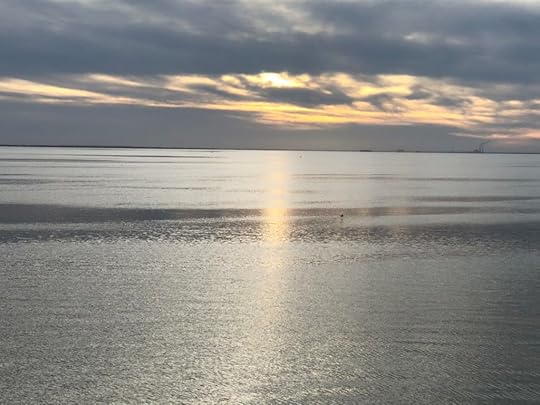
If the last months have taught me anything, it is that I’m human, and I’m afraid.
Where is my life journey taking me? I don’t know anymore. I lack total control; it scares me.
I think it is like a singular, exposed raw nerve frayed to the point my root ends like beaten down white threads begging to attach to certainty. I float helplessly, taken by the ocean’s tides and currents.
Give me some hope? Please. I’m tired. I don’t want to care about anyone or anything.
Is there a happiness waiting for me just over the bright morning horizon?
I have lots and lots of interesting questions and thoughts. But I do not have any answers.
Maybe, maybe not.
So I fall back, I retreat to what my grandfather and grandmother taught me.
I’ll get on my knees.
I’ll whisper a prayer.
I’ll ask for forgiveness.
I’ll request protection for those that I love.
I’ll beg for mental mercy and an allowance to help me sleep through the dark night.
In private I cry, I try to empty all my angst.
I give the invisible higher-power everything. I’m vulnerable.
I suspect my feelings are similar feelings oozing within other women and men and most of all, children.
I cry for the child abuse victims, the once innocent children. I wish I didn’t understand, but I do.
We all have a shared anxiety.
We are all marked down to our basic genetic code.
We are all living with the same anxiety. Uncertainty.
Perhaps all I want is a simple reassuring hug.
It’s not my nature to hug, I prefer to be mean to someone I care about. It makes life easy, cold and calculating, but it leaves me an empty vessel.
So, I try to make amends and offer a hug.
I try.
I suspect there are many fights and misunderstandings built up from this shared anxiety.
We have time to think and not enough moments to process our thoughts and feelings.
It has been a cruel season. I beg for it to end.
I pray for a common kindness to return.
I pray for a shared love to emerge.
In the meantime, I’ll get up early and I’ll go for my walk.
I’ll stand down near the dark waters and wait for dawn.
The new light gives me a bit of hope.
NS
August 3, 2020
Serenity
 Sunrise – St. Petersburg Pier
Sunrise – St. Petersburg Pier As the yellow sun gazes through the fading blue-gray clouds,
The dark waters smooth and still,
A breathless snapshot as the dark night gives way,
As a warm serenity hugs me,
I accept my place in the new day.
NS



